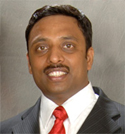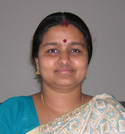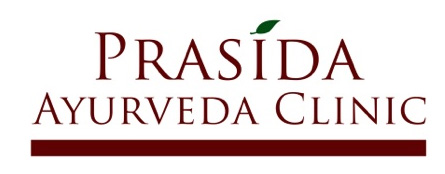Why Ayurveda ?
Ayurveda is a clinically time tested comprehensive system of Healthcare, an ancient science and the precursor for most systems of medicine and surgery in the world. It finds a need, has scientific relevance, has been aggressively researched up on and can contribute significantly to the varied medical and lifestyle needs of modern day.
Latest advancements in diagnostic methods and allied medical fields can seamlessly be interpreted and integrated with Ayurvedic practice and Prasida Ayurveda Clinic is a need based doctor centric institution and is all about bringing genuine Ayurveda closer to people who have conditions that require medical attention.
The concept of a day care clinic has been planned keeping in mind the accessibility, travel time, cost effectiveness and benefit from a facility that makes Ayurveda a practical, simple and safer alternative to the conventional care.
Clinical practice of Ayurveda by the Ayurvedacharyas at Prasida is backed by a 9 year presence at Calcutta. It has given us sufficient impetus to develop and refine protocols that are both, geographically and demographically relevant. Detailed health evaluation followed by prescribed internal medications, external therapies, Shodhana Panchakarma, diet and lifestyle counseling with guidance on Yoga and Meditation techniques form the basis of practice. Formulations from The Kottakkal Arya Vaidya Sala and other quality pharmaceutical houses of Ayurveda add to the efficacy of the prescriptions.
Ayurveda being an independent and a complete system of healthcare, has specialized solutions to various categories of diseases that afflict the physical, psychological and spiritual domains. Lifestyle diseases, chronic conditions like Auto Immune Disorders, Degenerative disorders and a number of other conditions seemingly respond well to Ayurvedic methods.
Panel of Physicians:
 Dr. C.M. Pradyumna B.A.M.S; Ayurvedacharya (University of Mysore) Dr. C.M. Pradyumna B.A.M.S; Ayurvedacharya (University of Mysore)
Gold Medalist
Chief Physician - Prasida Ayurveda Clinic
Consultant Ayurveda Physician - Belle Vue Clinic
Formerly - Director of Medicine, The Vedic Village
- Executive Consultant, Emami Limited
- Guest Faculty, Indian Institute of Management, Joka, Calcutta
Dr. Mrs. Sabitha Pradyumna B.A.M.S; Ayurvedacharya(University of Mysore)
 University Topper University Topper
Chief Physician - Prasida Ayurveda Clinic
Consultant Ayurveda Physician - Belle Vue Clinic
Formerly - Ayurvedacharya, The Vedic Village
- Executive Consultant, Emami Limited
Range of conditions
treated at Prasida:
Ayurveda being a complete
system of healthcare has solutions to various categories
of diseases and conditions requiring medical attention.
Though Ayurveda has its own set of limitations and possibilities
in the fields of physical and psychological domains; Lifestyle
diseases, Auto Immune Disorders and Degenerative disorders
seemingly respond well to the Ayurveda protocols. Some of
the areas where Ayurveda is a recommended option and managed
at our facility are -
- Chronic Pain Management
- Rheumatoid Arthritis
- Degenerative Osteoarthritis
- Chronic skin conditions like Psoriasis
- Allergies, Hypersensitivities
- Gastric disturbances like GERD, Acidity
- Migraine, Chronic Sinusitis
- Respiratory conditions - Bronchitis,
Asthma
- Neurological conditions like Neuropathies
- Anorectal disorders like piles and
fissure
- Non Healing Ulcers, bed sores.
- Ankylosing Spondylitis, Lumbago and
Sciatica
- Fibromyalgia
- Cervical Spondylosis, Capsulitis
(frozen shoulder)
- Psychiatric conditions like anxiety,
depression
- Insomnia
- Diabetes, Hypertension and Stress
- Post CVA rehabilitation in Paralysis
- Colitis, IBS, constipation
- Geriatric care
- Supportive care for Parkinson's Disease
- Supportive care for Multiple Sclerosis
- Diet and Lifestyle corrections
- Guidelines on Ttbga and Meditation
Our
range of external Therapies :
The list of therapies
in Ayurveda is exhaustive and to give you a bird's eye view,
the following are some of the treatments that you may experience
when on a therapeutic program at
Prasida.
Abhyangam,
forms the basis of all external therapies in Ayurveda, here
the body is conditioned to soak up the herbal oils that
are of high therapeutic value. Each session is customized
after the analysis of the strength of the patient, the disease
and the medication. The duration of this therapy is decided
by the Ayurvedacharya and generally; unless specified it
lasts for about an hour.
Shirodhara is
necessarily preceded by a session of Abhyangam, here a caressing
flow of healing oils or extracts is gently oscillated on
the forehead. This is a very efficient way to treat conditions
like stress, degeneration etc concerning the nervous system.
Patrapinda Swedana
is a clinically proven technique to attend to stubborn conditions
affecting deeper tissues like the bones, joints, muscles,
tendons and ligaments. It is here that energizing and exercising
of tissues happen simultaneously when the body is being
drained of the toxic build up that creates conditions like
rheumatism, arthritis, myalgia and conditions affecting
the back like spondylitis etc. This therapy follows abhyangam
and involves synchronized and rhythmic application of therapeutically
active herbs bundled into bags called "pottalis"
in a very traditional manner to harness clinical benefits
from a combination of active herbal oils, pressure, temperature
and technique.
Shodhana Panchakarma:
The zenith of all therapeutic
approaches in Ayurveda is termed as Shodhana or Panchakarma,
a very few Ayurveda hospitals offer the complete range of
Shodhana programs for want of expertise.
Nasya is
supposed to be the first among all the Panchakarmas. It
is intended to flush out the toxins of the head and neck
region. Here the medications are instilled in the nostrils
after conditioning the body with Abyhangam and Swedana.
This technique is employed to treat conditions like sinusitis,
frozen shoulder, cervical spondylitis and allied neuropathies.
Vamana is
a Shodhana of intensive nature specific to treat Kapha related
disorders that can be of auto immune nature or chronic chest
conditions like asthma, bronchitis, cough etc. Here the
toxins exit through a programed regurgitation.
Virechana a
more convenient way to de-toxify the system. Over a period
of about 15 days the body is conditioned, toxins are agitated,
dislodged, dragged towards the intestines and purged.
Vasti is in short "the
rectal route of medication", the medications given
using Vasti techniques are not denatured before they can
show a systemic action. This opens up avenues for management
and cure for an entire gamut of conditions that can be difficult
to treat in any other method.
Vasti therapies are recommended for chronic and deep seated
conditions affecting nerves, orthopedic, circulatory and
allied systems.
Other therapeutic modalities:
- Takra Dhaara (Anxiety, depression
conditions)
- Pizhichil (Fibromyalgia, degenerative
Osteoarthritis)
- Navara Kizhi (Neuropathies &
neuromuscular ailments)
- Netra Tarpana (In Ophthalmic conditions)
- Kati Vasti (Sciatica, Lumber Spondylitis,
Disc Prolapse)
- Udvartana (In dyslipidemia, obesity)
- Lepa (in skin disorders)
- Valuka Swedana (Rheumatoid arthritis,
spur)
- Pichu (Degenerative Osteoarthritis,
neuropathy)
- Pada Vasti (Weakness in legs, gait
related ailments)
- Anjana (Ophthalmic disorders, dry
eye syndrome)
- And customised programs to suit
|


